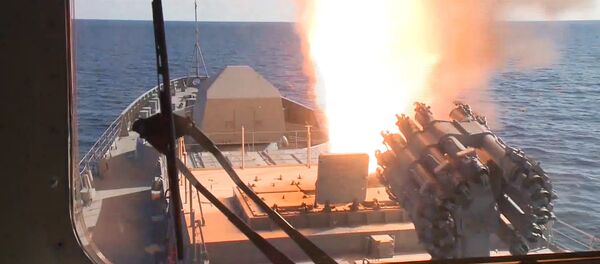Last week, the French politician urged to create a single joint coalition to resolve the Syrian crisis. "The good news is that we will be able to do away with an utterly counterproductive atmosphere of the Cold War between the United States and Russia after Donald Trump's victory," he said.
Chair of the Foreign Affairs Committee of Russia's upper house of the parliament Konstantin Kosachev told Izvestiya that Russia and the United States could be part of a single counterterrorism coalition. He mentioned two conditions that Washington has to meet to make this possible.
"There are no insurmountable obstacles on this path," he said. If Washington "primarily aims at tackling terrorism in Syria, then I see nothing that could prevent us from being in a coalition with the United States."
The Russian senator pointed out that under the Obama administration the United States was focused on a regime change, but Washington could alter its "strategic goals" when Trump's team comes to power. "This largely corresponds with Trump's pre-election rhetoric," Kosachev noted. The US president-elect said "that the United States will no longer meddle in the internal affairs of other countries."
Kosachev mentioned another necessary prerequisite for Russia joining forces with the United States in a bid to rid Syria of radical groups, including Daesh and al-Nusra Front. This coalition, if it is established, "will fully adhere to international law," he said.
Senior Fellow at the Center for Arab and Islamic Studies at the Institute of Oriental Studies Boris Dolgov told the newspaper that Washington will not change its strategy towards Syria in an instant even if Donald Trump and his team are willing to focus on Daesh instead of Assad.
"There will be no progress" until Trump moves into the White House, the political analyst said. "Trump will also have to overcome the resistance from national security, defense and law enforcement agencies, particularly the Pentagon and the CIA."
"We were ready to go, and we can be ready to go again," an unnamed US defense official told the Washington Times last week. "It's all speculation at this point," a State Department official noted, saying that it was unclear "whether they're going to keep the strategy as it is, tweak it, revise it or do away with it completely."





